VW Caddy Compact Van vs Tesla Model 3 – Differences & prices compared
Compare performance, boot space, consumption and price in one view.
Find out now: which car is the better choice for you – VW Caddy Compact Van or Tesla Model 3?
The VW Caddy Compact Van (Cargo Van) comes with a Petrol, Diesel or Plugin Hybrid engine and Manuel or Automatic transmission. In comparison, the Tesla Model 3 (Hatchback) features a Electric engine with Automatic transmission.
When it comes to boot capacity, the VW Caddy Compact Van offers , while the Tesla Model 3 provides 594 L – depending on how much space you need. If you’re looking for more power, decide whether the 150 HP of the VW Caddy Compact Van or the 627 HP of the Tesla Model 3 suits your needs better.
In terms of consumption, the values are 0.50 L per 100 km for the VW Caddy Compact Van, and 13.20 kWh for the Tesla Model 3.
Price-wise, the VW Caddy Compact Van starts at 25800 £, while the Tesla Model 3 is available from 34300 £. Compare all the details and find out which model fits your lifestyle best!
VW Caddy Compact Van
The VW Caddy small van is a versatile option for those seeking a practical and efficient transporter. With its sleek design and innovative features, it caters well to both business needs and everyday convenience. The interior is thoughtfully designed, offering comfort and ample space for cargo or passengers, making it a reliable choice for various tasks.
details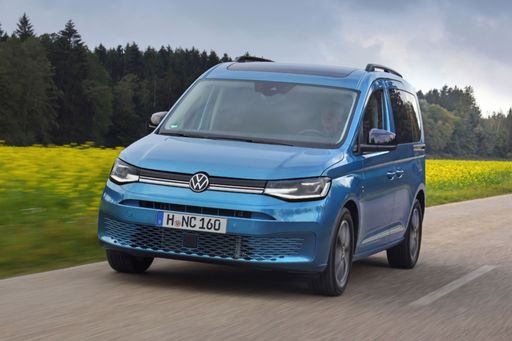 @ vwpress
@ vwpress
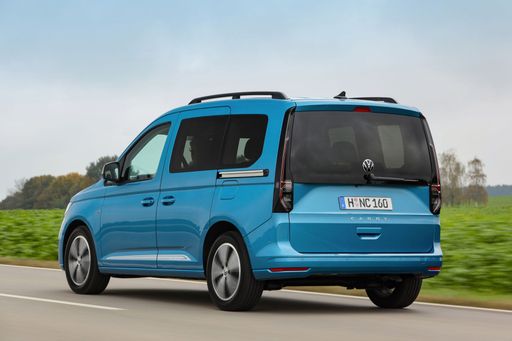 @ vwpress
@ vwpress
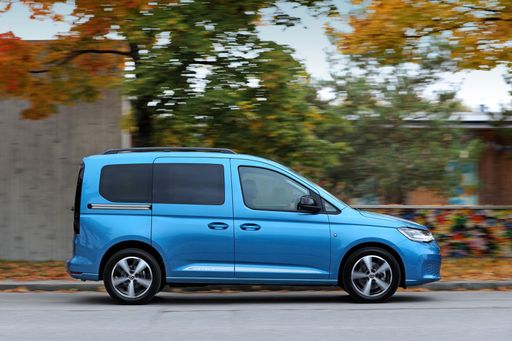 @ vwpress
@ vwpress
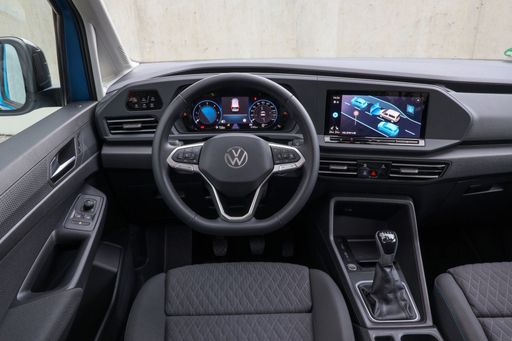 @ vwpress
@ vwpress
Tesla Model 3
The Tesla Model 3 stands out in the electric vehicle market with its sleek design and impressive performance capabilities. It offers a seamless driving experience that combines advanced technology with minimalistic interiors, creating a futuristic feel on the road. Additionally, its range and charging infrastructure make it a practical choice for both city commuting and longer journeys.
details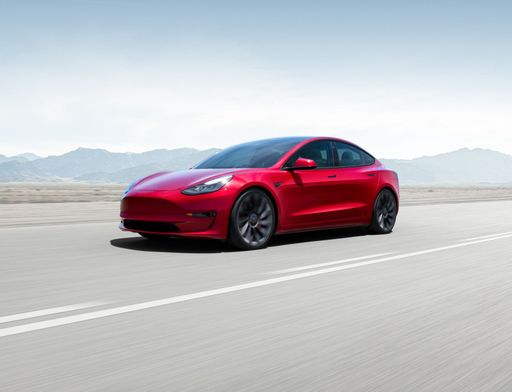 @ tesla.com
@ tesla.com
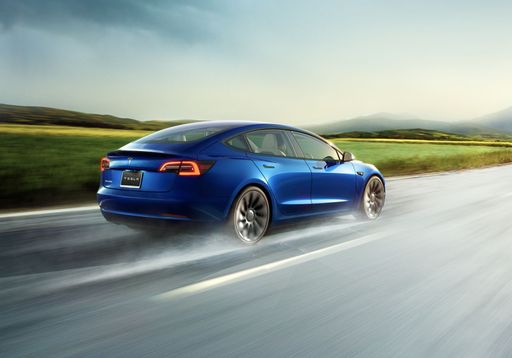 @ tesla.com
@ tesla.com
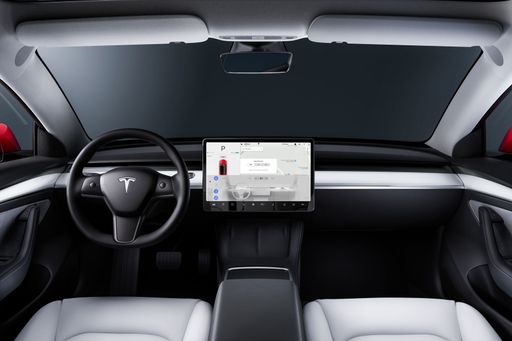 @ tesla.com
@ tesla.com
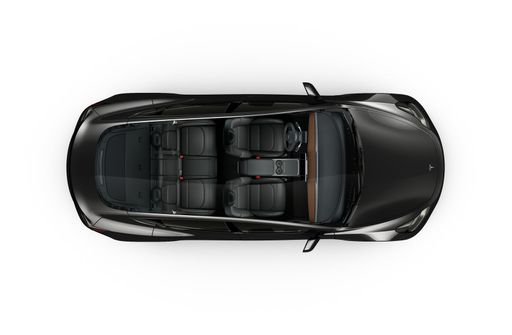 @ tesla.com
@ tesla.com

|

|
|
|
|
Costs and Consumption |
|
|---|---|
|
Price
25800 - 42300 £
|
Price
34300 - 50100 £
|
|
Consumption L/100km
0.5 - 6.8 L
|
Consumption L/100km
-
|
|
Consumption kWh/100km
-
|
Consumption kWh/100km
13.2 - 16.7 kWh
|
|
Electric Range
117 - 120 km
|
Electric Range
513 - 702 km
|
|
Battery Capacity
19.70 kWh
|
Battery Capacity
62 - 79 kWh
|
|
co2
11 - 154 g/km
|
co2
0 g/km
|
|
Fuel tank capacity
50 L
|
Fuel tank capacity
-
|
Dimensions and Body |
|
|---|---|
|
Body Type
Cargo Van
|
Body Type
Hatchback
|
|
Seats
2
|
Seats
5
|
|
Doors
4 - 5
|
Doors
5
|
|
Curb weight
1442 - 1818 kg
|
Curb weight
1822 - 1929 kg
|
|
Trunk capacity
-
|
Trunk capacity
594 L
|
|
Length
4500 - 4853 mm
|
Length
4720 - 4724 mm
|
|
Width
1855 mm
|
Width
1850 mm
|
|
Height
1819 - 1823 mm
|
Height
1431 - 1440 mm
|
|
Payload
628 - 759 kg
|
Payload
303 - 333 kg
|
Engine and Performance |
|
|---|---|
|
Engine Type
Petrol, Diesel, Plugin Hybrid
|
Engine Type
Electric
|
|
Transmission
Manuel, Automatic
|
Transmission
Automatic
|
|
Transmission Detail
Manual Gearbox, Dual-Clutch Automatic
|
Transmission Detail
-
|
|
Drive Type
Front-Wheel Drive, All-Wheel Drive
|
Drive Type
Rear-Wheel Drive, All-Wheel Drive
|
|
Power HP
102 - 150 HP
|
Power HP
283 - 627 HP
|
|
Acceleration 0-100km/h
-
|
Acceleration 0-100km/h
3.1 - 6.1 s
|
|
Max Speed
175 - 186 km/h
|
Max Speed
201 - 262 km/h
|
|
Torque
220 - 320 Nm
|
Torque
420 - 660 Nm
|
|
Number of Cylinders
4
|
Number of Cylinders
-
|
|
Power kW
75 - 110 kW
|
Power kW
208 - 461 kW
|
|
Engine capacity
1498 - 1968 cm3
|
Engine capacity
-
|
General |
|
|---|---|
|
Model Year
2024
|
Model Year
2023 - 2024
|
|
CO2 Efficiency Class
E, B
|
CO2 Efficiency Class
A
|
|
Brand
VW
|
Brand
Tesla
|
VW Caddy Compact Van
Compact Versatility: A Closer Look at the VW Caddy Compact Van
The VW Caddy Compact Van has long been a staple in the commercial vehicle sector, offering a versatile and robust solution for professionals and businesses alike. Combining impressive technical capabilities with innovative features, the latest iteration of the Caddy Compact Van continues to uphold its legacy as a dependable and efficient vehicle.
Engine Performance and Efficiency
At the heart of the VW Caddy Compact Van lies an efficient and powerful engine range designed to meet varying performance needs. The van comes with several engine options, including economical yet robust diesel engines and responsive petrol variants. These engines have been engineered to optimize fuel efficiency without compromising on power, making the van a cost-effective option for urban deliveries and long highway journeys alike.
Innovative Design and Practicality
The VW Caddy Compact Van features a meticulously crafted design that focuses on practicality and space utilization. Its compact dimensions are perfect for navigating busy city streets, while the interior offers a surprisingly spacious cargo area. This innovative design ensures that every inch of space is used effectively, maximizing cargo capacity without affecting driver and passenger comfort.
Advanced Technology for Modern Needs
Embracing modern technology, the VW Caddy Compact Van is equipped with a host of intelligent systems aimed at enhancing safety and convenience. The van features advanced driver-assistance systems, including adaptive cruise control, park assist, and a rear-view camera. These features contribute to a safer driving experience, whether maneuvering through narrow city streets or handling larger loads on the highway.
Comfort and Convenience Inside
Inside, the VW Caddy Compact Van presents a blend of comfort and practicality. The ergonomic design ensures that all controls are within easy reach, allowing the driver to focus on the road. Optional infotainment systems and connectivity features, such as smartphone integration and Bluetooth connectivity, provide a seamless driving experience, turning the Caddy into a mobile office on wheels.
Environmental Responsibility
In light of increasing environmental awareness, the VW Caddy Compact Van has been designed to minimize its ecological footprint. The efficient engine options produce low CO2 emissions while adhering to stringent environmental standards. This commitment to environmental responsibility makes the Caddy a smart choice for businesses looking to reduce their carbon footprint.
Conclusion: A Dependable Partner
In conclusion, the VW Caddy Compact Van remains a leader in its class, offering a dynamic combination of performance, efficiency, and practicality. Its innovative features and advanced technology cater to the diverse needs of modern businesses, ensuring the Caddy is not just a vehicle, but a reliable partner on the road. Whether used for transporting goods or as a mobile workshop, the VW Caddy Compact Van continues to deliver on its promise of versatility and dependability.
Tesla Model 3
Introduction to the Tesla Model 3
The Tesla Model 3 has quickly become a beacon of innovation in the world of electric vehicles (EVs), embodying a perfect blend of performance, technology, and sustainability. Known for redefining the electric car experience, the Model 3 stands as a testament to Tesla's commitment to pushing the boundaries of automotive design and engineering.
Design and Build
With its sleek fastback silhouette, the Tesla Model 3 is not only visually captivating but also aerodynamically efficient. Measuring at 4720 mm in length, 1850 mm in width, and 1441 mm in height, it optimally combines aesthetics with functionality. The Model 3 boasts a 594-litre boot space, offering ample room for everyday storage needs. Built with environmental efficiency in mind, its CO2 efficiency rating stands proudly at a perfect A, making it an ideal choice for the eco-conscious driver.
Powertrain and Performance
Under the bonnet, the Model 3 offers a diverse range of powertrains. It is available in both rear-wheel drive (RWD) and all-wheel drive (AWD) options, catering to different driving preferences. The electric motors deliver a remarkable power output ranging from 283 to 460 PS, translating to 208 to 338 kW. Depending on the variant, the Model 3 can accelerate from 0 to 100 km/h in a staggering 3.1 to 6.1 seconds. With a top speed between 201 and 262 km/h, the Model 3 promises an exhilarating driving experience.
Battery and Range
The Model 3 is equipped with a robust battery pack, available in capacities ranging from 62 to 79 kWh. This ensures an impressive electric range of 513 to 629 km on a single charge, catering perfectly to both city drivers and those who frequently embark on long-distance journeys. The energy consumption is between 13.2 to 16.5 kWh per 100 km, showcasing Tesla's efficiency in engineering cutting-edge EV technology.
Technological Innovations
The interior of the Model 3 is where technology takes centre stage. With its state-of-the-art autopilot feature, semi-autonomous driving is not just a promise but a reality. The vehicle continually updates over-the-air, ensuring that the software is always up-to-date with the latest features and improvements. Furthermore, the minimalist interior design, accentuated by a massive central touchscreen display, epitomises modernity and enhances the user experience with intuitive controls and navigation.
Cost Considerations
Given its advanced features and performance capabilities, the Model 3's price point ranges from €42,490 to €58,490. Monthly operating costs are estimated to be between €1,073 and €1,397, with per-kilometre costs between 42.9 and 55.9 cents, making it a competitively priced option within the premium EV market segment.
Conclusion
The Tesla Model 3 continues to lead the charge in the electric revolution, offering a compelling package of performance, innovation, and sustainability. For anyone seeking a modern, efficient, and technologically advanced vehicle, the Model 3 deserves serious consideration. With Tesla's groundbreaking vision and innovative engineering, this vehicle is not merely an investment in cutting-edge technology but also in a sustainable future.
Which drive types are available for the VW Caddy Compact Van?
Available as Front-Wheel Drive or All-Wheel Drive.
The prices and data displayed are estimates based on German list prices and may vary by country. This information is not legally binding.
